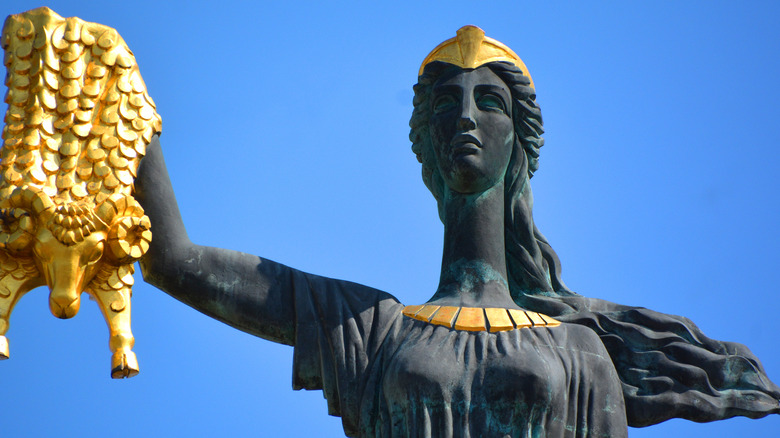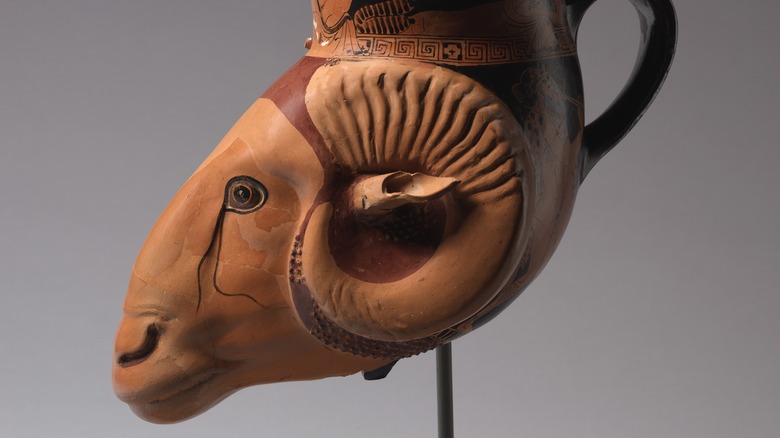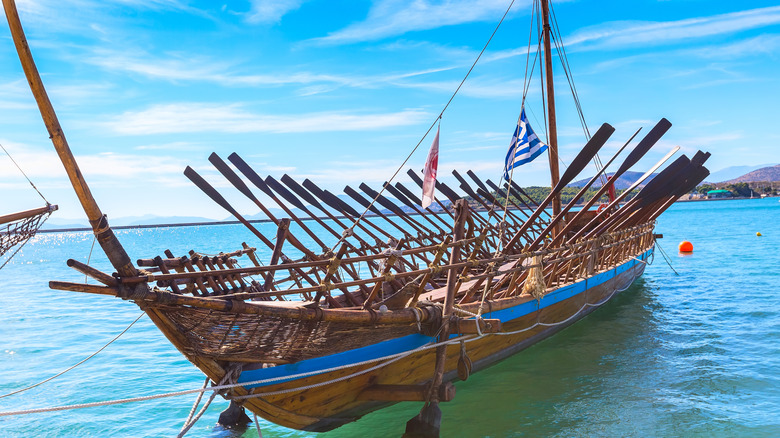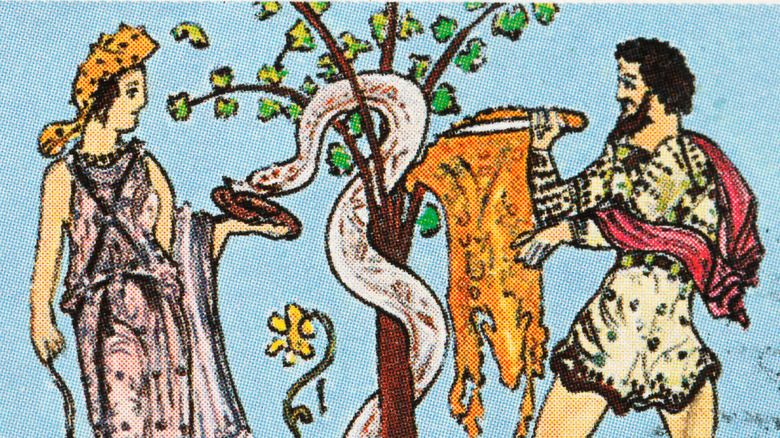The Tragic Myth Of Jason And Medea Explained
One of the most enduring myths to come down from the world of Ancient Greece is the story of the hero Jason and his wife and lover, Medea. It's also one of the most disquieting tales in the Western canon: a story of romance, betrayal, and most hauntingly, of a mother who murders her children.
It is also a myth of European identity, contrasting East and West through the Greek hero Jason and the Asian princess Medea. Like the saga of the Trojan War, it mythologized the arduous physical journey from Greece to Asia Minor, even giving a new name to the straits off modern Istanbul: the Hellespont.
The myth of Jason and Medea has inspired major works of art, from ancient times — like the controversial tragedy by the Athenian playwright Euripides in the fifth century B.C., or the beloved third-century B.C. adventure narrative called "The Argonautica" — to modern works of art, like the 1963 fantasy film "Jason and the Argonauts," or the 1969 drama "Medea," starring opera superstar Maria Callas in the title role (available on YouTube).
The hunt for the Golden Fleece
Versions of the myth of Jason and Medea had circulated Greece for centuries before writers like Euripides and Apollonius recorded them. PBS summarizes the basic story: A child named Jason, raised by the centaur Chiron, is the rightful king of Iolchus, kept out of power by his uncle, Pelias. When the young Jason confronts Pelias, the old man agrees to a trade. He will give Jason the kingdom back, if Jason brings him the legendary Golden Fleece.
What was the Golden Fleece? According to "The Argonautica" by Appolonius (posted at Project Gutenberg), it was the skin of a flying, golden ram, sent to Earth by Zeus to protect two of Jason's ancestors. The ram took the children to Colchis, a mysterious, wealthy, faraway land. When it died, the king of Colchis had its precious skin hung up in a sacred tree, guarded by a dragon.
Some of this, by the way, seems to be inspired by true events. Colchis was a real kingdom, in modern Georgia, known for its abundance of gold. The Fleece itself may derive from a memory of gold panning, using a sheepskin to dredge gold nuggets from riverbeds, as the Daily Mail suggests. In any case, Jason accepted the challenge.
The voyage of the Argo
Jason set sail in a ship called the Argo, according to Apollonius (posted at Project Gutenberg), accompanied by a band of heroes known today as the Argonauts. These included Heracles, or Hercules, the twins Castor and Polydeuces (or Pollux), the singer Orpheus, and other "celebrities" of the Greek mythos. Apollonius tells us that one woman, the swift-running Atalanta, was considered but ultimately not invited: One woman and a lot of men, isolated for months on a ship, sounded like trouble.
Together, the bold Argonauts braved the unknown waters of the Black Sea and its bizarre monsters. They encountered the harpies, for example, and the Symplegades, two massive rocks that periodically crashed together, smashing any ship that sailed between them.
When at last they reached Colchis, the king agreed to relinquish the Golden Fleece if Jason could finish four impossible tasks. He had to yoke a team of fire-breathing bulls. Then, with the bulls, he had to plow a field and plant dragon's teeth. Those dragon's teeth would sprout into men, whom Jason would have to overcome in single combat. Finally, he had to get past the dragon that guarded the Fleece.
A horrifying revenge
Luckily for Jason, the king of Colchis had a daughter named Medea who fell in love with the handsome stranger. Medea was a witch, and knew secret ways to win the four trials her father set for Jason. She gave Jason an ointment to protect him from fire, so he could yoke the bulls like ordinary oxen; then she told him to throw a rock into the crowd of warriors who emerged from the dragon's teeth. Each warrior thought his neighbor had thrown it at him, and they all fought each other until they died. Finally, Medea gave Jason a potion to put the dragon to sleep. Jason took the Golden Fleece, and Medea sailed back with him to Greece, to marry him.
But this wasn't a happy ending. After Medea bore two children to Jason, he got bored of her and did the ancient equivalent of filing for divorce, remarrying a younger woman. Medea, in her rage, poisoned their two children. The words Euripides gave her in his play "Medea" will forever haunt the Western imagination:
"Let no one think that I'm a trivial woman, a feeble one who sits there passively. No, I'm a different sort — dangerous to enemies ... Lives like mine achieve the greatest glory."



